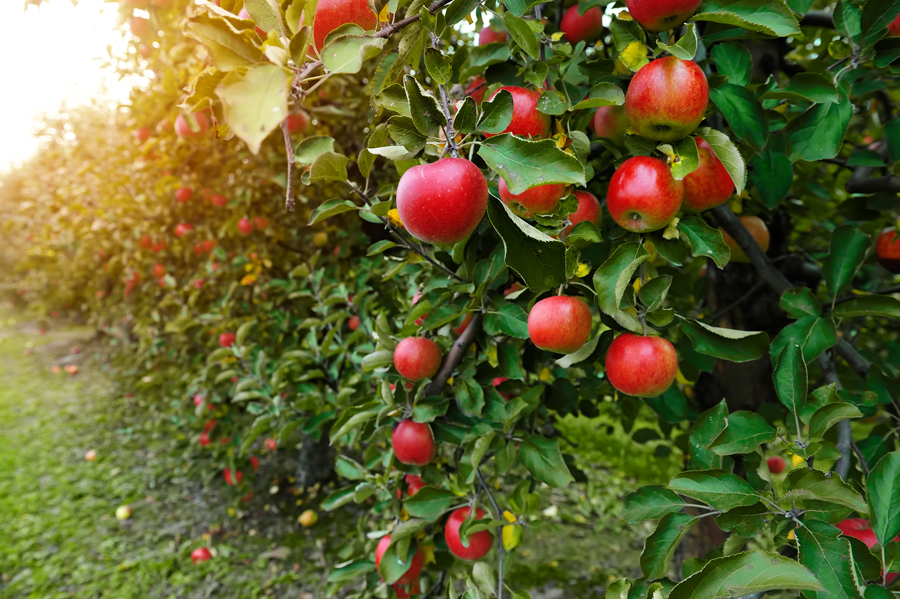Three critical changes needed to save British apple orchards
14th December 2023
New data suggests the industry is on a knife edge, with double-digit cost of production increases, low returns and low grower confidence.

British Apples & Pears Limited (BAPL) has published a new set of data that highlights the continued struggles for beleaguered UK top fruit growers. The full set of data is the largest ever released at one time by the industry.
Over the two years since 2021, British apple growers faced 30% increases in costs of production and received just 8% increases in returns from supermarkets.
In 2022, growers faced cost of production increases of 23% and practically static returns from supermarkets that year of 0.8%. In 2023, British apple growers faced 6-9% cost of production increases and received an average of 7% increases in returns from UK supermarkets.
Unsustainable
“This situation is unsustainable,” said executive chair of BAPL, Ali Capper. “The industry is on a knife edge. I’ve never heard such desperation from our members. When you think about what a good news story our industry should be, it’s heart breaking. Apples are a superfood – great for our health, the environment and our rural economy.
“The volatility in costs has become the biggest challenge faced by growers, many of them out of their control from labour and energy to the ever-increasing cost of the audit burden. We should not be talking about the slow decline of British apple orchards, and generations of family farm businesses at risk of bankruptcy.”
Comments from British apple growers who completed the BAPL survey reveal the stark situation many of them face:
“I’m retiring from growing apples and my son doesn’t want to touch them. He’s seen the returns.”
“As a younger solo grower having taken on the fruit farm, I am incredibly frustrated at how little the supermarkets are willing to pay, whilst also increasing ‘hoops’ to jump through.”
“The industry is in crisis. The price setters are killing us.”
“I have been growing fruit for over 40 years and never found it so difficult.”
“Prices have stagnated for the last five years.”
Low confidence
Given this situation, confidence in British apple growing is understandably low:
- 70% of growers said they are less confident than they were a year ago.
- Just 3% of growers said they have a ‘true partnership’ with supermarkets, while 45% say retailers only buy on price and that it’s not a true partnership.
- Almost half (45%) of respondents said they have scaled back their future investment plans.
“Ultimately, it’s not just British growers that are losing out, it’s UK shoppers too,” continued Ali Capper.
“According to The Grocer’s analysis of Assosia data, in the two years from November 2021 to November 2023, the price of apples has increased significantly with the average price in Aldi rising by 12.6%, Lidl 12.1%, Tesco by 10.9% and Sainsbury’s by 9.1%. Together these four retailers sell over 70% of all British apples and pears. And the averages hide some startling extremes, Lidl’s Oaklands Red Apples 2kg went up by 50%, Morrisons British Apples (six pack) went up 39% and Tesco increased the price of its Rosedene Farms Gala apples (six pack) by 36%.
“Unfortunately, those consumer price increases are not being matched by the much-needed returns to growers.”
Response to crisis
In response to the crisis in the industry, BAPL has set out three critical changes needed to save British apple orchards:
- Supermarkets to increase returns to growers to reflect the true cost of production and necessary investment.
- Supermarkets to enter longer-term arrangements with growers to give farmers the confidence to grow this perennial crop, invest in much-needed technology, varieties and automation.
- Supermarkets to put action behind their words of support for British farming with in-store and online merchandising that celebrates our wonderful fruit.
The BAPL data is not all bad news. Several supermarkets have undertaken excellent promotional work to celebrate the start of the current British apple season. This has included TV advertising by Lidl, print ads and social media farmer profiles by Waitrose and an email campaign, point-of-sale and social media posts by Marks & Spencer.
The promotional support for British apples has resulted in excellent October British apple sales results for some supermarkets, as reported by BAPL in November. Lidl in particular significantly outperformed its market share, selling more than any other supermarket in October (3,030 tonnes). Unfortunately, a number of UK supermarkets have been slower to get behind British apples this season and have instead been importing apples from overseas at a time when UK fruit is in plentiful supply.
British Growers Insights data revealed that in the seven-week period from 2nd October 2023 to 13th November 2023, just 16.7% of the Gala apple packs (SKUs) on shelf in Tesco were British and only 20% of Asda apple packs were British. That compares to 100% in Marks & Spencer and Lidl, and 82.4% in Waitrose, 77.8% in Sainsbury’s.
“It’s astounding to our growers that when we have new season British apples that taste great readily available close to home, supermarkets persist in buying from overseas. UK consumers, who want to buy British whenever they can, are being disadvantaged – and so are British apple growers,” concluded Ali.
